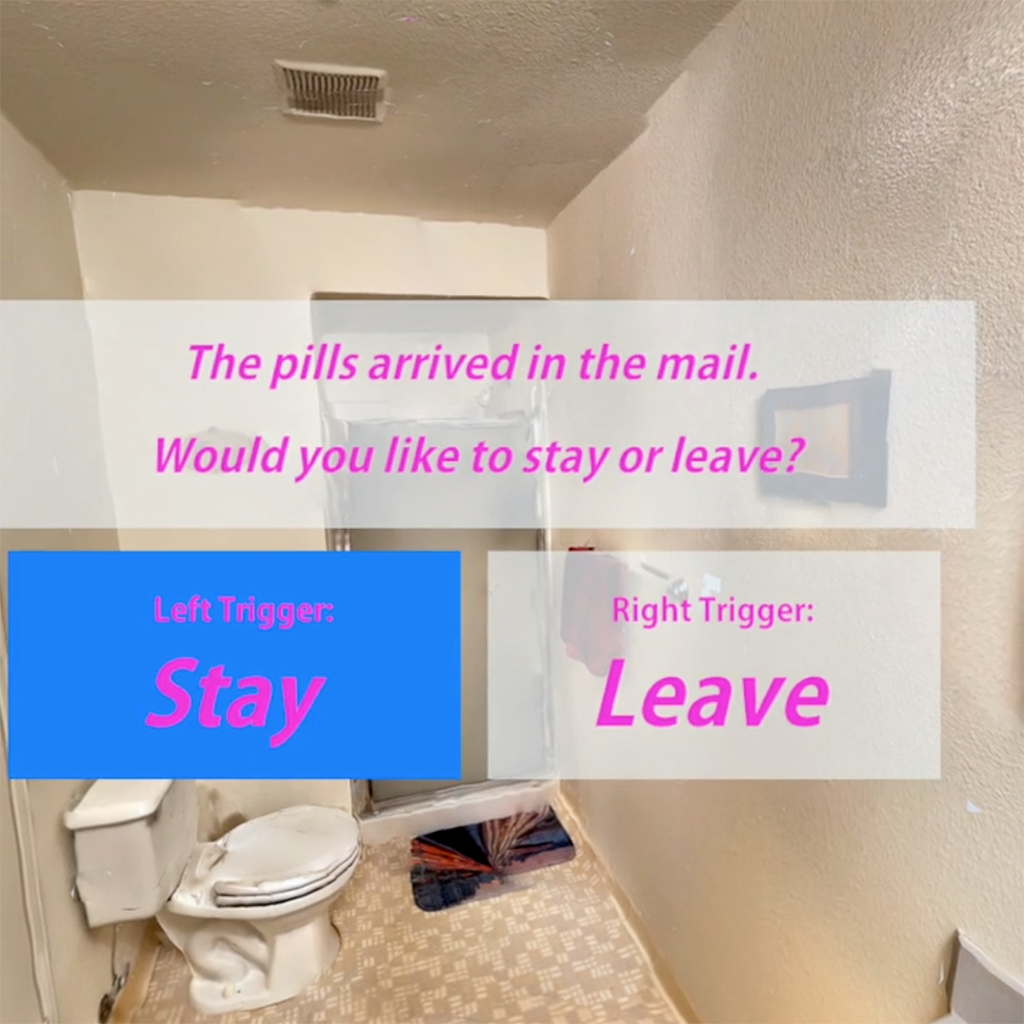Game Information
| Title | Mountains after Mountains (산 넘어 산) |
| Presenter(s) | This work is a collaboration between Amy Mihyang Ginther, Susana Ruiz, and Huy Truong, and their team Patrick Stefaniak (development), Adam Kruckenberg (sound), Leah Nichols (art), and Alessia Cecchet (associate producer). |
| Session | Conference Reception, Game Exhibition, and Poster Session |
| Time | Wednesday, October 12, 7:00p-9:30p |
| Location | MSU Union Ballroom |
| Format | Game Exhibition |
| Screenshot |  |
| Description | Mountains after Mountains is a Virtual Reality (VR) experience designed for individual "invited" guests. It centers Ginther's autobiographical account of her illegal abortion in South Korea in 2013. Ginther originally wrote the text in response to a 2019 rise in US legislation that limited reproductive rights. It is equally pertinent today. At the time, a major social media narrative claimed that adoption is a legitimate alternative to abortion, and Ginther responded by sharing her own experience of having an illegal abortion as an adopted person. She articulates her solidarity with her Korean mother's hardship and emphasizes the capitalist and patriarchal forces that limit the choices they could both make regarding their bodies. The performance is part sung and part spoken in rhymed iambic pentameter verse. The experience (10-12 minutes) incorporates live action elements filmed in volumetric video and photogrammetry, and animation created by Korean American adoptee Leah Nichols. Mountains After Mountains bridges VR and theatre, and is organized around four acts that lead the guest through a seemingly innocent children's song about a mountain bunny looking for chestnuts to a song of grief that is a way of honoring the struggles that generations of women continue to face (mountains after mountains).
As creators, we use our work to resist present and future patriarchal, capitalist, and racist uses/processes/outcomes of and through media storytelling technologies. This project seeks to address Lisa Nakamura's critique of a lot of VR experiences. In "Feeling good about feeling bad: virtuous virtual reality and the automation of racial empathy" Nakamura argues that many forms of VR exploit marginalized trauma so that the user can feel good about feeling bad for the other, creating a false and toxic way to embody compassion. For this reason, we position the user of this piece as a guest that must be invited and, instead of inviting our guest to simply witness or embody Ginther's abortion, we employ interactive and aesthetic elements that create tension between the cute, seemingly harmless, sentimental aesthetic of the Korean children's song Santoki (and more broadly, of K-Pop culture), and darker sociopolitical implications within the script. As the experience progresses, the guest becomes disoriented and overwhelmed so they experience a more abstracted and personalized sensation akin to what Ginther and her mother experienced, without relying on their stories being overly exploited. |
